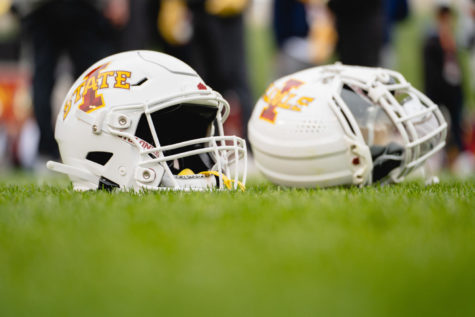Hunt: Canceling the New York City Marathon was wrong choice
November 6, 2012
There were a number of reasons not to run the historic New York City Marathon on Sunday, less than a week after Hurricane Sandy began its destruction of the five boroughs.
But one reason to run the race, more important than any other, was to help a city get back on its feet.
When Mayor Michael Bloomberg announced the 26.2-mile race was going to continue as planned, he made a bold statement reminding the nation, and more importantly New Yorkers, that the city is not going to take this devastation lying down.
Two days before the race was scheduled to continue, he made an even bolder statement by canceling the race saying: “It is clear that it has become the source of controversy and division.”
The idea to continue running the race may have had mixed feedback, but it is important not to ignore the impacts events like this have had on the healing process in past tragedies.
Disaster is going to strike. We don’t know when or where, and the only thing we can control is our reaction.
The mayor’s original decision was the right choice. Sporting events have been an avenue of hope after disaster in America, especially in this new millennium.
Surely the reception of the Mets hosting a game just 10 days after the 9/11 attacks was a huge example of the hope and the power sports can create. This has been proven over and over again.
The town of Parkersburg, Iowa, gained national publicity as the sport of football picked the town up by its bootstraps after a tornado destroyed numerous amounts of property, including the high school.
And almost everyone remembers the impact the Saints coming back to New Orleans after Hurricane Katrina.
The marathon would not have been about the runners; it would have been a giant step forward on the road back to normal. It also would have created mounds of inspiration.
Before the cancellation, the race had been dubbed the “Race to Recover” and the New York Road Runners had created a fund that would donate at least $1 million to charities involved in relief efforts.
With the money and encouragement the marathon would have created, canceling the race was a poor decision made too hastily.
Bloomberg said and continued to emphasize the race would not have diverted resources, so the cancellation was solely based on the backlash the media and others had given the mayor.
Someone in that position should not have been pushed around so easily, but this isn’t about politics.
The Knicks and Giants both had games on schedule and were a beacon to its fans and other citizens to not give up.
Canceling a 43-year tradition is not a step in the right direction. The race to recover is a marathon, not a sprint, and New York took a step away from the finish line.
Although the race was canceled, a few thousand people still showed up, ran the marathon and gave whatever clothing, supplies and donations they could to help the hurting people of New York City.
If something so minimal as a group of unorganized race participants running without a purse or time bonuses could have such an effect, imagine what the real thing would have offered the city.
—
Isaac Hunt is a sophomore in pre-business and journalism from Wayland, Iowa.
















